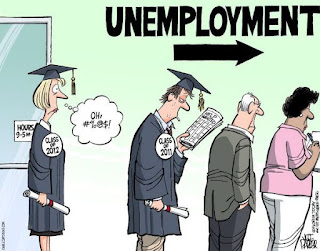Deepening the Shallow Pool of Public Education
Since the early 20th century, one reason that many students attend educational institutions has changed from a desire for knowledge and the power that comes with it to, simply, because they have to be there. In “Education: The Great Obsession”, author Grace Lee Boggs argues that the purpose of public education needs to change if we are going to inspire and educate kids, particularly those who have been marginalized. Boggs brings forth the idea that there are ‘winners’ and ‘losers’, and that whichever one you are is based on such factors as race and socio-economic status. She says that, in order to keep the ‘losers’ in line, “…the myths of education as the magic weapon to open all doors, particularly the door to higher earnings and unlimited consumption…have been propagated”. In other words, American students are told that in order to make something of their lives, they must stay in school.
To unpack this idea, it’s important to consider the social implications of such a system. In “Imagining Futures: The Public School and Possibility”, Maxine Greene states “the common dream and dominant hope of the contemporary American is for personal wealth and prominence…”. When the end goal of education is to get a better job, make money, and live the so-called American Dream, it pushes aside those who do not have the same connections and opportunities. So here we have a system that emphasizes the importance of personal wealth, implying that without goods and status, we are worth less as people. For their own benefit, those in charge tout the idea that getting an education is the only way to achieve any success in life. This sentiment is shallow, and it is difficult for many students to find meaning or reason behind it.
Part of the issue with the ‘winners’ and ‘losers’ argument is that it is based on an early 20th century population of mostly white people. As our educational system has expanded to include students of all races and backgrounds, these same ideals have not adapted alongside. Though “the task of the American school was to assimilate those who were different, to enable them to stand on a common ground” (Greene 269), our school systems have failed these students who need the most. While this ideal may have been effective before the integration of schools, by keeping it around we do a serious disservice to those who do not come from the same history as these long-dead rulemakers.
So if society has changed, and our students are no longer a homogeneous bunch, why has the widely accepted purpose of education stayed the same? In her paper, “A Simple, Revolutionary Idea”, Dr. Adrienne Goss argues that it shouldn’t. She has found a remedy in the tenets of Kemet, or Ancient Egypt. In this system, “The ‘fundamental purpose’ was social and emphasized the responsibility to one’s community and humanity in addition to learning skills, developing wisdom, and refining moral character” (62). This idea expands upon the American way of learning facts and subjects, and attempts to create a whole person rather than one who can simply regurgitate information. Isn’t this the type of student we want? One with depth, and thoughtfulness, and a desire to improve the world around them? Why would we want to uphold a system that forces a hierarchy of ‘winners’ and ‘losers’, when instead we can have a society of people who care and strive for the betterment of everyone?
In the following video, Malcolm X speaks about Kemet and its importance in the lives of African Americans. His ideas mimic Dr. Goss’s belief that in order for schools to properly serve marginalized students, students need to be able to learn their history, not just the histories of lawmakers who are unlike them.
As we move forward into an ever-changing world, it is crucial to deepen the scope of public education into the type of institution that every citizen can draw meaning from, regardless of their situation in life, and can then go forth and make the world a better place.


We are creating mini-communities in our classroom made of so many different citizens. And with each member their story is waiting to be told. We are the teachers but we can learn so much from our students.
ReplyDeleteI completely agree! The best communities are formed in classrooms when teachers listen to their students.
Delete"When the end goal of education is to get a better job, make money, and live the so-called American Dream, it pushes aside those who do not have the same connections and opportunities. So here we have a system that emphasizes the importance of personal wealth, implying that without goods and status, we are worth less as people." This statement right here absolutely nails the main problem with the US educational system. We've explicitly tied education to employable labor, while at the same time infusing those concepts with the hierarchical overtones of class and race. As the authors so concisely pointed out, there is no way to equitably move education forward in this country without including the communities served by the schools. Absolutely *love* the inclusion of Malcolm X as a relevant contribution to this topic!
ReplyDeleteWhat is interesting about the perception of the American Dream is that (and I am speaking from the experiences I have had with my students who have recently moved to the States and their parents) I find for parents it is still very much alive for them - and the idea that education is key to achieving this is something that they have carried with them from their native countries. As their students become disillusioned it is difficult, as one can imagine, for the parents to understand. But, I think that just enough "winners" succeed to keep these parent's faith in the system alive. And the "losers" are those pegged as unable to "pull themselves up by their bootstraps".
ReplyDelete